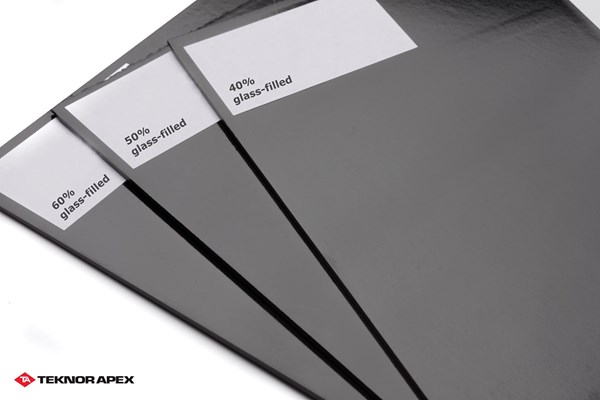Teknor Apex Reveals More on Novel Nylon Family
The company’s new Engineering Resins Div. formed after acquisition of German custom compounder PTS.

Earlier this month, Teknor Apex announced the recasting of its former Nylon Div. as the new Engineering Thermoplastics (ETP) Div. The move is linked to the company’s March 2016, acquisition of German custom compounder Plastic-Technologie-Service (PTS). I had the opportunity to speak with Mike Roberts, v.p. in charge of the new ETP who clarified some details on the initial product launch in North America.
The ETP unit will globalize a wide range of engineering thermoplastics technologies developed in Europe, which were previously not widely available in the Americas or Asia. Founded in 1986, PTS has a portfolio of more than 700 commercial ETP products based on nine major technological platforms and resins. Included are a variety of nylons, PBT, PC, PC/ABS, other blends, TPEs, and TPVs.
ETP in North America will start with the introduction of the Creamid ultra-high-performance, glass-reinforced nylons, which will be produced both in the U.S. and Europe. These nylons are based on a different polymer chemistry than widely used nylons like Teknor’s Chemlon products.
Roberts revealed that Creamid is comprised of a large product suite of aromatic nylons that can be custom formulated to include grades with very high-heat temperature performance. “We are looking to bridge gaps between glass-filled nylon 6 and 66 and higher-end engineering thermoplastics like PPA.” He confirms that a vast range of additives are used in customized formulations.
The first three Creamid A3H7 grades being launched contain 40%, 50%, and 60% glass fiber. In Europe, they are utilized in automotive air vents, spoilers, fan blades, spring adapters, and key fobs. Roberts says, other applications include automotive mirror housings, where Creamid is both stronger and reduces vibration vs. nylon 6, headlamps, auto and non-auto electrical applications, and photovoltaics, due to its low water absorption.
For example, compared to moisture absorption of 1.7% for 33% glass-filled Chemlon 133 GH nylon 66, the three initial Creamid glass-filled grades have moisture absorption levels of 0.55%, 0.4% and 0.3%, respectively.
In addition to “dramatically better” physical properties than nylon 66, including excellent dimensional stability, improved chemical resistance, and better surface aesthetics, Creamid is said to deliver equally better processing characteristics.
One of the next families to be launched will include Duramid nylons. Also in the aromatic class of nylons with higher strength and impact properties, Roberts describes them as having an “exotic performance range”, with properties that exceed not only Creamid but metals, and which are higher priced. Targeted to the defense market, they can also be customized for growing underhood automotive applications where PPA is used, including high-heat connectors or parts that are close to a turbocharger and come into contact with glycol.
Roberts also confirmed that Teknor’s Leominster, Mass., facility is equipped for ETP’s R&D requirements—ranging from prototyping to applications development.

Related Content
-
Prices Bottom Out for Volume Resins?
Flat-to-down trajectory underway for fourth quarter for commodity resins.
-
Lanxess and DSM Engineering Materials Venture Launched as ‘Envalior’
This new global engineering materials contender combines Lanxess’ high-performance materials business with DSM’s engineering materials business.
-
Tracing the History of Polymeric Materials, Part 26: High-Performance Thermoplastics
The majority of the polymers that today we rely on for outstanding performance — such as polysulfone, polyethersulfone, polyphenylsulfone and PPS — were introduced in the period between 1965 and 1985. Here’s how they entered your toolbox of engineering of materials.
















